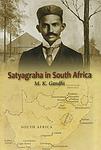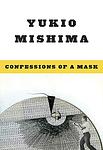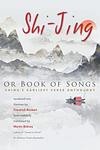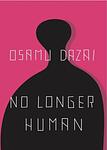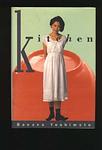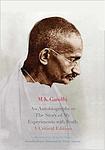Genres
Date Range
Reading Statistics
Click the button below to see how many of these books you've read!
Download
If you're interested in downloading this list as a CSV file for use in a spreadsheet application, you can easily do so by clicking the button below. Please note that to ensure a manageable file size and faster download, the CSV will include details for only the first 500 books.
Download-
51. The Sorrow Of War by Bao Ninh
The book is a poignant tale about a North Vietnamese soldier, Kien, and his experiences during and after the Vietnam War. It's a graphic and emotional exploration of the traumas of war, the loss of innocence, and the struggle to make sense of life post-conflict. The narrative is non-linear, shifting between his horrific war experiences, his post-war life in Hanoi, and his attempt to come to terms with his past. The novel also highlights the broader societal impact of the war, particularly on the Vietnamese people.
-
52. I Ching by China
This ancient Chinese text is a divination system and book of wisdom. It provides guidance for moral and ethical decisions through 64 hexagrams, which are six-line figures made up of broken and unbroken lines. Each hexagram represents a specific situation or state of affairs, and the text provides interpretations and advice for each. The book has been used for centuries as a tool for decision-making, prediction, and gaining deeper understanding of situations and relationships.
-
53. The River Sutra by Gita Mehta
"The River Sutra" by Gita Mehta is a captivating novel that explores the intertwining lives of various characters along the sacred river Narmada in India. Through vivid storytelling and rich descriptions, the book delves into themes of spirituality, love, and the search for meaning in life. As the characters embark on journeys of self-discovery, the river serves as a powerful metaphor for the flow of life and the interconnectedness of all beings. With its lyrical prose and thought-provoking narrative, "The River Sutra" offers a profound exploration of the human experience and the timeless wisdom of ancient traditions.
-
54. The Great Indian Novel by Shashi Tharoor
This book is a satirical take on Indian politics and history, cleverly intertwined with characters and events from the epic Mahabharata. The narrative presents a parallel between the two, with the characters in the novel mirroring significant figures from India's political scene during the Independence and post-Independence era. The book is a humorous yet thought-provoking critique of Indian society and politics, offering a unique blend of myth, history, and satire.
-
55. Satyagraha in South Africa by Gandhi
This book is a personal account of the author's experiences during the Indian struggle for civil rights in South Africa. It details the development and implementation of the concept of Satyagraha, or non-violent resistance, as a means of combating social injustice. The book provides a unique insight into the author's philosophies and strategies of peaceful protest, including his belief in the power of truth and the necessity of self-sacrifice in the fight against oppression.
-
56. The Box Man by Kobo Abé
"The Box Man" is a surreal narrative about a man who chooses to live as a homeless individual, inside a box, in Tokyo. The protagonist, a former doctor, narrates his experiences and observations from within the box, and the narrative often blurs the line between reality and hallucination. The book is a philosophical exploration of identity, anonymity, and the nature of existence, challenging the reader's perception of what it means to be an individual in society.
-
57. Balzac and the Little Chinese Seamstress by Dai Sijie
This novel tells the story of two teenage boys sent to a remote mountain village for re-education during China's Cultural Revolution. There, they meet a local tailor's daughter, who becomes their friend and the object of their shared affection. The boys discover a hidden suitcase filled with forbidden Western classics in Chinese translation, and their lives are forever changed. The books not only awaken their passion for literature, but also allow them to educate the Seamstress, ultimately leading to a heartbreaking love triangle and a tale of personal freedom against the odds.
-
58. Beauty and Sadness by Yasunari Kawabata
A renowned novelist in Tokyo is drawn back into the life of his first love, Otoko, who he had a passionate affair with when she was just 15. Now a successful painter, she lives with a young woman named Keiko, who is deeply devoted to her. As the novelist becomes entangled in their lives once again, a complex web of love, jealousy, and resentment unfolds. The novel is a poignant exploration of the enduring themes of memory, love, and loss.
-
59. The Three-Body Problem by Cixin Liu
The book is a science fiction novel that intertwines the cultural revolution of China with a complex narrative involving astrophysics, virtual reality, and alien contact. It follows a disillusioned scientist who, after suffering personal tragedy during the Cultural Revolution, sends a message into space, only to receive a response from an alien civilization on the brink of destruction. As the aliens plan their migration to Earth, a secret organization works to facilitate the invasion, while a disparate group of scientists and military personnel attempt to understand and prevent the impending extraterrestrial crisis. The novel grapples with themes of human nature, technological advancement, and the vast, often incomprehensible universe.
-
60. Kafka On The Shore by Haruki Murakami
"Kafka On The Shore" is a surreal and philosophical novel by Haruki Murakami that follows two parallel storylines. The first is that of Kafka Tamura, a 15-year-old boy who runs away from home to escape an Oedipal prophecy and searches for his missing mother and sister. The second storyline follows Nakata, an elderly man who has lost his memory but possesses the ability to communicate with cats. As their paths converge, they encounter strange and mystical events that challenge their perceptions of reality and identity. The novel explores themes of fate, free will, and the human psyche, and is a captivating and thought-provoking read.
-
61. The Guide by R. K. Narayan
"The Guide" follows the life of Raju, a corrupt tour guide who, through a series of events, ends up in prison, and later becomes a spiritual guide. After his release from prison, Raju is mistaken for a holy man by villagers and gets involved in resolving a drought problem by fasting. The novel explores themes of life, death, and redemption, as well as the complex nature of human relationships and the power of belief.
-
62. Confessions of a Mask by Yukio Mishima
The novel explores the life of a young man living in post-World War II Japan who grapples with his homosexuality in a society that does not accept it. The protagonist must wear a metaphorical mask to hide his true identity and desires, leading to a life of self-denial and inner turmoil. The narrative delves into themes of identity, sexuality, societal expectations, and the struggle for self-acceptance.
-
63. Bhagavad Gita by Unknown
The book is a 700-verse Hindu scripture that is part of the Indian epic Mahabharata. It takes the form of a dialogue between Prince Arjuna and the god Krishna, who serves as his charioteer. On the battlefield of Kurukshetra, just as the war is about to begin, Arjuna is filled with doubt and moral dilemma about fighting in the battle. Krishna imparts spiritual wisdom and guidance to Arjuna, addressing his concerns and leading him through a profound discourse on various philosophical concepts, including the nature of life, the soul, and one's duties. The text covers topics such as righteousness, devotion, and the paths to spiritual liberation, ultimately encouraging Arjuna to rise to his duty as a warrior with the understanding that the true self is eternal and beyond physical conflict.
-
64. Platform Sutra by Huineng
The "Platform Sutra" is an essential text in Zen Buddhism, presenting the teachings and philosophy of a renowned sixth patriarch. The book offers deep insights into the nature of enlightenment and the practice of dhyana (meditation). It emphasizes the concept of 'sudden enlightenment', asserting that it can be achieved by realizing one's own 'Buddha nature'. The text is also known for its promotion of direct, personal experience and the potential for enlightenment in all beings, irrespective of their social or educational status.
-
65. The Book of Songs by China
"The Book of Songs" is a collection of ancient Chinese poetry, providing a rich cultural and historical insight into early Chinese society. The anthology includes various types of poems, such as folk songs, hymns, and courtly songs, reflecting the life, customs, and beliefs of different social classes. It serves as a significant literary work and historical document, revealing the evolution of the Chinese language, thoughts, and values over centuries.
-
66. Forbidden Colours by Yukio Mishima
"Forbidden Colours" is a deeply introspective novel that explores themes of beauty, youth, old age, love, and betrayal, set against the backdrop of post-war Japan. The story follows a young, beautiful man who is manipulated by an elderly writer to seek revenge on women. The young man's beauty becomes a weapon, while the old man's bitterness and jealousy drive the plot. The novel delves into the darker aspects of human nature and society's obsession with beauty, providing a stark commentary on the human condition.
-
67. No Longer Human by Osamu Dazai
The narrative delves into the life of a troubled man who feels disconnected from society, viewing himself as fundamentally different from those around him. Through a series of notebooks, he recounts his life story, detailing his struggles with alienation, social anxiety, and a deep sense of personal inadequacy. As he grapples with his own identity and the expectations of others, his journey is marked by failed relationships, substance abuse, and an ongoing battle with his inner demons. The protagonist's quest for understanding and his inability to find his place in the world ultimately lead him down a dark and self-destructive path, reflecting a poignant exploration of the human condition and the difficulty of truly connecting with others.
-
68. Black Rain by Masuji Ibuse
The novel is a poignant and detailed account of the aftermath of the atomic bombing of Hiroshima, as experienced by a Japanese family. Through the diary entries of a survivor and the narrative of the days that follow, the book explores the devastating impact of the bomb on the city's inhabitants, their struggle with radiation sickness, and the societal stigma they face. It delves into the physical and psychological trauma inflicted by the event, painting a somber picture of the human cost of war and the long-lasting effects of nuclear weapons on both individuals and communities.
-
69. Hard-Boiled Wonderland and the End of the World by Haruki Murakami
In this novel, two parallel narratives intertwine, one following a data encryptor in a dystopian, futuristic Tokyo who becomes embroiled in the machinations of a mysterious scientist and his granddaughter, the other set in a surreal, dreamlike town where a man is tasked with reading old dreams from unicorn skulls. As the story progresses, it becomes evident that the two worlds are connected in a profound and unsettling way, leading to a shocking conclusion that explores themes of consciousness, identity, and the nature of reality.
-
70. The Honjin Murders by Seishi Yokomizo
"The Honjin Murders" is a captivating mystery novel set in a rural village in Japan. When a young couple is found brutally murdered on their wedding night in an isolated mansion, the local police are baffled by the lack of evidence and suspects. As the investigation unfolds, dark family secrets, hidden motives, and a series of puzzling clues emerge, leading the reader on a thrilling journey to uncover the truth behind the Honjin murders.
-
71. Kitchen by Banana Yoshimoto
The book is a poignant tale of love, life, and loss intertwined with the themes of food and kitchens. The narrative follows a young woman who, after the death of her grandmother, finds solace in the home of her friend and his transgender mother. As she navigates her grief, she also grapples with her growing feelings for her friend. The story explores the complexities of relationships, the concept of home, and the healing power of cooking.
-
72. Akira by Katsuhiro Otomo
Set in a post-apocalyptic Neo-Tokyo, this graphic novel follows the lives of two teenage friends, Tetsuo and Kaneda, who are members of a biker gang. After a motorcycle accident, Tetsuo develops telekinetic abilities and is taken by the military, which fears his growing powers might unleash another cataclysmic event similar to the one that destroyed Tokyo years earlier. As Tetsuo's powers spiral out of control, Kaneda, along with a group of rebels and psychics, must try to stop him and uncover the secrets of a mysterious entity known as "Akira," which is at the heart of the government's experiments and the city's destruction. The narrative explores themes of power, corruption, and the quest for identity against a backdrop of cyberpunk visuals and intense action.
-
73. Poems of Matsuo Bashō by Matsuo Bashō
This collection of poetry explores the work of one of Japan's most renowned haiku masters. The poems, celebrated for their simplicity, depth and beauty, often draw from nature and the changing seasons to reflect on the fleeting nature of life. The author's work is known for its poignant observations, emotional intensity, and ability to evoke a sense of tranquility and enlightenment. This compilation is an essential read for anyone interested in traditional Japanese literature and the art of haiku.
-
74. The Story Of My Experiments With Truth by Mahatma Gandhi
This book is an autobiography that details the personal journey of a prominent leader who played a key role in India's struggle for independence from British rule. It explores his philosophy of nonviolent resistance and truth, which he refers to as "Satyagraha," and traces his development from a young, unsure boy into a principled activist committed to social justice. The narrative delves into his experiments with diet, celibacy, and other personal challenges, reflecting his quest for self-improvement and moral integrity, which he believed were essential for political leadership and social reform.
-
75. The Inheritance of Loss by Kiran Desai
This novel explores themes of love, loss, and the human struggle for identity amidst political unrest. Set in India during the Nepalese movement for an independent state, the narrative follows the lives of a retired judge living in the Himalayas, his granddaughter, and his cook. As the political situation worsens, each character must grapple with their own personal issues, including the judge's regret over his failed marriage and his granddaughter's struggle to find her place in the world. The cook, meanwhile, dreams of a better life for his son in the United States. The narrative weaves together these individual stories to create a poignant tapestry of human resilience in the face of adversity.
Reading Statistics
Click the button below to see how many of these books you've read!
Download
If you're interested in downloading this list as a CSV file for use in a spreadsheet application, you can easily do so by clicking the button below. Please note that to ensure a manageable file size and faster download, the CSV will include details for only the first 500 books.
Download



